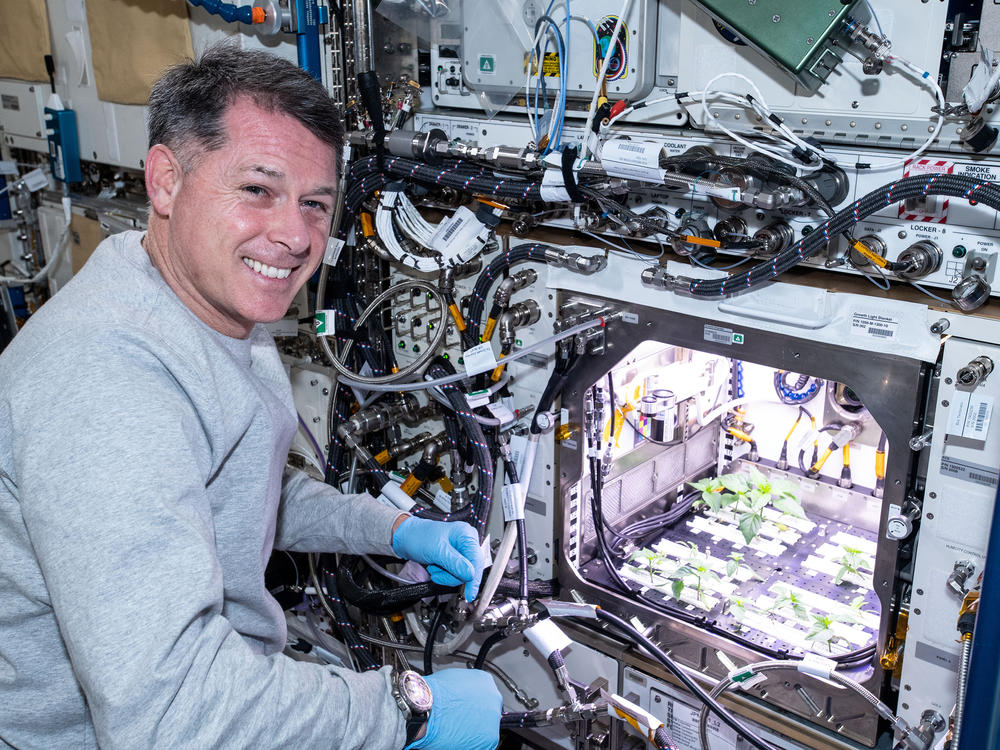GHSA 6A Boys Basketball Championships: Wheeler High School vs Newton High School starts at 7:30 p.m.
Section Branding
Header Content
Astronauts grew green chile on the space station and made themselves space tacos
Primary Content
Outer space just got a little more delicious.
Astronauts aboard the International Space Station had the pleasure of dining on space tacos last weekend: tacos topped with green chile that was actually grown in space. As part of NASA's Plant Habitat-04 investigation, scientists began growing hatch chile — a type of pepper found in New Mexico's Hatch Valley — aboard the ISS in July in an effort to understand more about "plant-microbe interactions" in space, NASA said.
Astronauts have grown other crops, such as lettuce and radishes, in space before. But peppers are more difficult to grow in space because they take a relatively long time to germinate and bear fruit, according to the NASA release.
This is the first time NASA has grown peppers in space, and astronauts finally got to taste the fruits of their labor on Friday before collecting data on the red and green peppers that were harvested. Astronaut Megan McArthur shared photos of what she called her "best space tacos yet," which were made using fajita beef, rehydrated tomatoes and artichokes, and the hatch chile grown on the ISS.
"Friday Feasting!" she wrote on Twitter.
The chile pepper experiment is part of a bid to expand the number of crops that astronauts can grow in space during future missions, NASA explained in a July release.
"The challenge is the ability to feed crews in low-Earth orbit, and then to sustain explorers during future missions beyond low-Earth orbit to destinations including the Moon, as part of the Artemis program, and eventually to Mars," said Matt Romeyn, principal investigator for NASA's Plant Habitat-04 experiment. "We are limited to crops that don't need storage, or extensive processing."
It looks like astronauts may be able to snack on fresh green chile on future missions. Call it one giant bite for mankind.
Copyright 2021 NPR. To see more, visit https://www.npr.org.
Bottom Content

